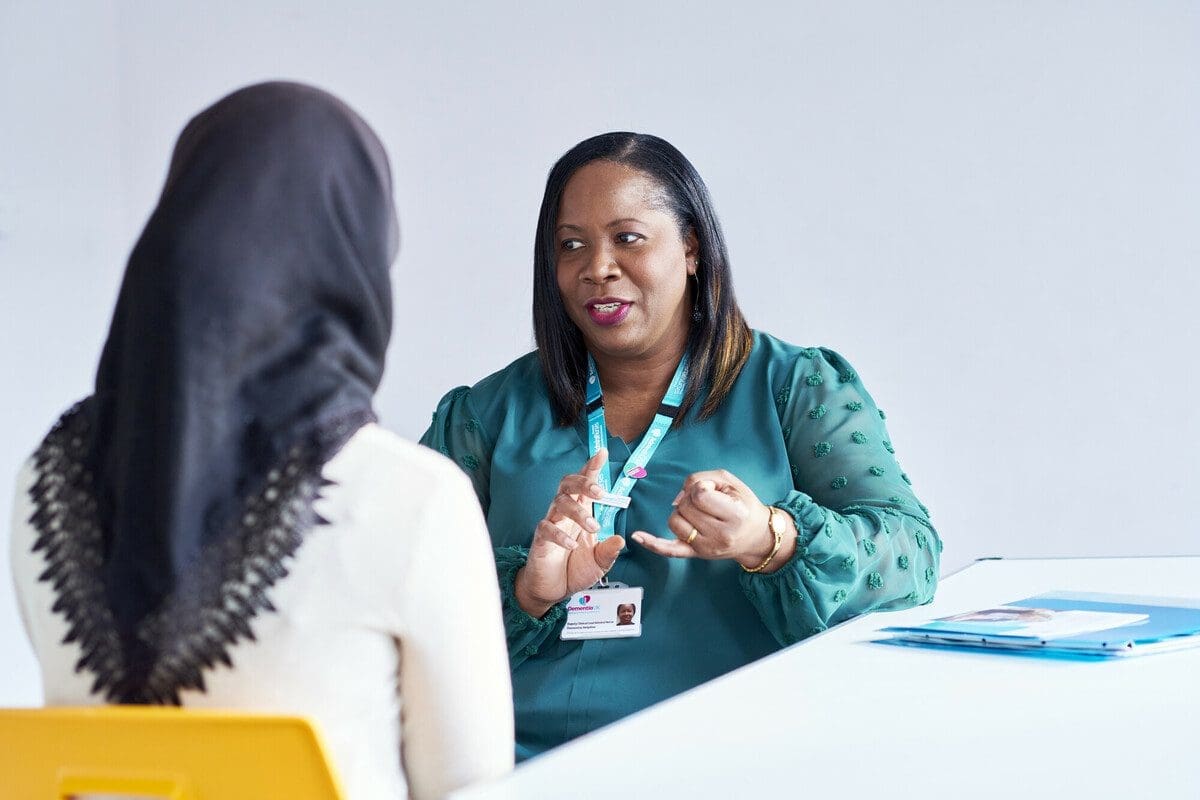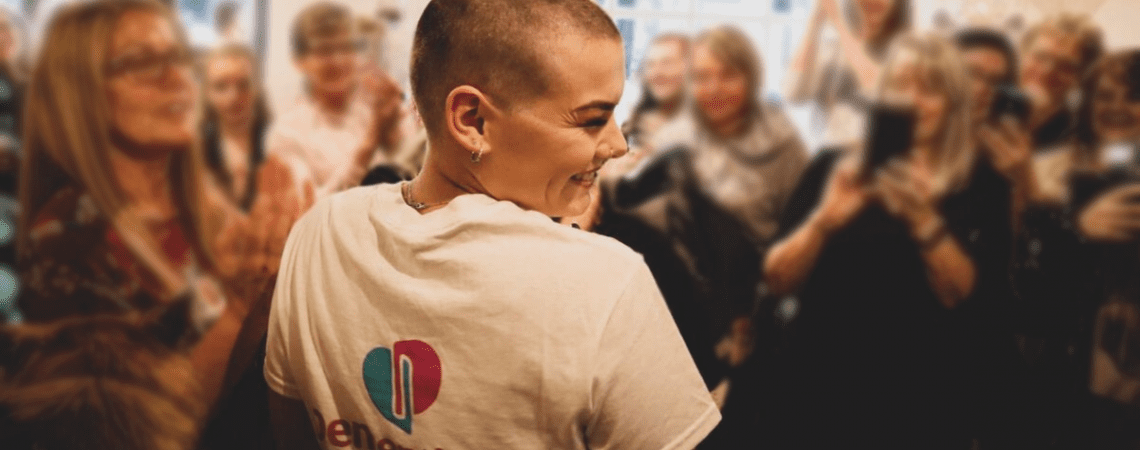My name is Sarah Rudman and I have been a dementia specialist Admiral Nurse for seven years. I currently work on the Admiral Nurse Dementia Helpline where I give advice and support to people with dementia, their family carers and other professionals.
Active body, active mind
Keeping active can play a big part in staying in good shape physically and mentally as we grow older, and this is no different for someone living with dementia.
Physical activity can help to keep our bodies working well for as long as possible and helps promote a sense of well-being.
Socialising with other people – for example at a sponsored sporting event – can promote confidence and encourage conversation in people with dementia as well as helping cognitive functioning.
If you’re planning a sporting challenge to raise vital funds for families living with dementia, it’s important to make your event accessible and inclusive so that everyone can get the most out of the day. Here are few things to consider:
Preparing for your event
- Every person will be at a different stage in their dementia journey so it’s important to be prepared for this and to consider how this might influence the day
- Keep your activity as simple as possible or have an alternative and enjoyable activity alongside. For example, if you are holding a Tennis-a-thon, you could have the option of playing singles instead of doubles
- Use visual aids to help stimulate memories relating to your activity. You could source some old photos of well-known sports personalities linked to the event, such as a famous tennis player from the past
- If it is forecast to be a warm day try to organise your activity in the morning and out of direct sunlight if possible. Make sure there is somewhere shaded for people to sit – too much exposure to the sun can cause sunburn and heatstroke, and some medications make the skin more sensitive to sun
- Ensure there is access to water so that participants can keep hydrated throughout the day – being dehydrated increases the risk of delirium in people with dementia (a sudden and extreme sense of confusion) which can be very distressing and requires immediate medical assistance
- Make sure that your event is accessible for people with mobility issues
On the day
- Make sure there is clear signage and visual aids – for example, you could stick a picture of a toilet to the toilet door to help people find it more easily
- Greet guests when they arrive and explain what is happening at the event in a clear and simple way
- Include an incentive to play to encourage maximum participation – for example, you could give participants a medal or a cake so they feel a sense of achievement and of being valued
- Keep activities short. Fifteen to 30 minutes of any activity can be more than enough for many people living with dementia. Make sure that if someone is taking part more than once, they have a break in between
- It’s all about having fun so encourage everyone to take part in a way that suits them so they enjoy themselves as much as possible
After the event
- A person with dementia might feel tired after physical activity. Ensure they have some quiet time with minimal stimulation to rest and recuperate after the event
- If you have taken photos at the event, you can share them with the person with dementia to stimulate memories and provide a talking point – but do make sure you ask their consent before putting any pictures of them on social media. If they are unable to consent, consider whether posting the photos is in their best interests, and if in doubt, keep the pictures to yourselves
If you would like to speak to a specialist Admiral Nurse about physical activity and dementia or any other aspect of dementia, please do not hesitate to contact our free Helpline.


